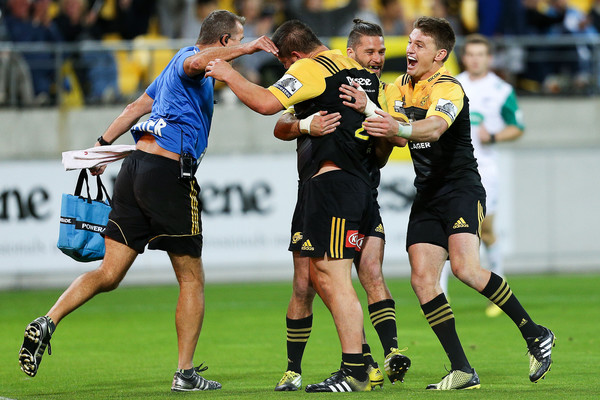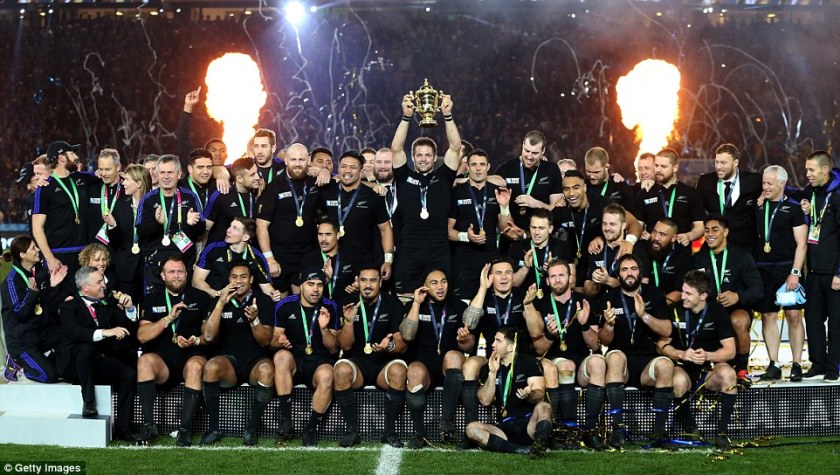
The Super Rugby Round 9 has ended this Sunday with the last game of the round, the Crusaders playing the Brumbies at Canberra, in their GIO Stadium. Like all the previous rounds, there is always something to learn from the Super Rugby games each weekend.
In 2016, Super Rugby has made the choice of the expansion with three new franchises coming : The Jaguares (Argentina), the Sunwolves (Japan) and the Southern Kings (South Africa). The 18 franchises are in four different conferences and two major groups also.
Contrary to the other seasons, there will be 18 Rounds during the 2016 Super Rugby season. Each franchise will have two bye weekends, which means that the players will be rested while the other franchises will play. So, each team will play 16 games in the season.
Currently, we are at the end of the first-half of the new season. The second-half will begin very quickly with franchises having played only seven games (like Bulls) due to the bye weekends. Let’s make a first review of the season and see which franchises are favourites.
1st : The Waikato Chiefs – 8 games – 33 points
The Chiefs are dominating the start of the Super Rugby season. They made a statement during their first game, winning against the Crusaders. They have been in fine form with counter-attacking masterclass and fullback Damian McKenzie is their new talisman.
2nd : The Canterbury Crusaders – 8 games – 32 points
For Todd Blackadder’s last season in charge, the Crusaders wants to win the title. They recovered from an early loss at home against the Chiefs to win the next seven games. The Crusaders were particularly impressive during their tour in South Africa and in Australia.
3rd : The Cape Town Stormers – 8 games – 28 points
Leading their conference, the Stormers have not changed their gameplan since Allister Coetzee’s leaving to coach South Africa. Playing with a lot of physicality, the Stormers’ only two defeats came against south-african franchises : the Sharks and the Lions.
4th : The Johannesburg Lions – 8 games – 27 points
Walking into a new era, the Lions are improving every weeks thanks to Johan Ackermann. The Lions coach wants to play the All Blacks way and that is working. Their pack, led by skipper Warren Whiteley, is strong and the back-three, with Ruan Combrinck, incredible.
5th : The Wellington Hurricanes – 8 games – 26 points
The Hurricanes started and finished their first-half of the season with disappointment. They recorded great wins including a game against the Blues at Eden Park. The Hurricanes have to put disappointment aside to focus on their tour with a young and talented squad.
6th : The Otago Highlanders – 8 games – 24 points
Defending champions had tough times. The Highlanders lost to the Blues in the opening game (31-33) before winning games but without taking the bonus point try against Western Force. They will have to bounce back following defeats against Reds and Sharks.
7th : The Pretoria Bulls – 7 games – 23 points
With a game to play compared to their opponents, the Bulls are in a good position. Following a defeat against the Stormers and a draw at home against the Sharks, the Bulls used their strength in the pack to win games with winger Bjorn Basson back to his best.
8th : The Melbourne Rebels – 8 games – 22 points
Inconsistency would probably be the best word to define the Melbourne Rebels season so far. They won away against the Waratahs but also lost at home against the Hurricanes, conceding 38 points. The coach Tony McGahan knows that there is room for improvement.
9th : The ACT Brumbies – 8 games – 21 points
Semi-finalists last season, the Brumbies started the 2016 season brillantly but lost two games. Missing their world-class flanker David Pocock, the Brumbies need to trust their playmakers Christian Leali’fano and Matt Toomua to climb in the standings very quickly.
10th : The Durban Sharks – 8 games – 21 points
The Sharks have been outstanding and disappointing so far. Prop and skipper Tendai Mtawarira led the franchise to a big win against the Stormers. However, they fell against the Blues before bouncing back against the Highlanders. Their season is full of surprises.
11th : The NSW Waratahs – 7 games – 17 points
There is some re-building to do at the Waratahs following Michael Cheika’s departure. Daryl Gibson is coaching them and kept the same gameplan. Key players of the franchise such as second-row Will Skelton and backs Nick Phipps and Kurtley Beale have to deliver.
12th : The Auckland Blues – 7 games – 16 points
Another franchise who needs time to find their game is the Auckland Blues. Tana Umaga has replaced John Kirwan and the message is playing an attractive game with offloads and breakdown commitment. The task will not be easy with the Blues needing consistency.
13th : The Bloemfontein Cheetahs – 8 games – 12 points
The Cheetahs do not have the most impressive squad in South Africa but they are trying to play with their abilities. If they need physical pack, their backline is firing, scoring 92 points against Sunwolves. They could not prevent defeats against Jaguares and Brumbies.
14th : The Queensland Reds – 8 games – 8 points
The first-half of the season is just finishing and the Queensland Reds have already sacked their coach. Richard Graham left after disappointing games including the Western Force loss. New coaches have done better thanks to Nick Frisby and the power of Samu Kerevi.
15th : The Buenos Aires Jaguares – 8 games – 7 points
There was a massive expectation from the crowd with the Jaguares coming in Super Rugby. They only won a game so far and it was against the Cheetahs. However, they have got a very good defence and they never lose by much. Argentinians need to find their game.
16th : The Tokyo Sunwolves – 8 games – 7 points
That was a tough learning for the Sunwolves with that 92-point defeat against the Cheetahs. The Japanese franchise is coached by former Hurricanes coach Mark Hammett. They won their first ever game against the Jaguares. They have to be physical though.
17th : The Western Force – 8 games – 6 points
The Western Force is not a franchise which deserves his ranking. They stayed in the contest with Hurricanes during an hour and lost by a point at home against the Crusaders. They rely on imports like All Blacks Alby Mathewson and Springboks Peter Grant.
18th : The Southern Kings – 7 games – 4 points
For their comeback in Super Rugby, the Southern Kings showed their desire to play well. The franchise recorded a win again Sunwolves and despite what the scoreboard could suggest, they were far from being ridiculous against the Crusaders and the Hurricanes.
Conclusion
The first-half of this 2016 Super Rugby season is coming to an end and that is possible to get some indications about franchises’ form and guess which of them will go in the play-offs at the end of Round 18. Nevertheless, that is incredibly close in the Super Rugby table.
The New Zealand conference remains very strong with four franchises (Chiefs, Crusaders, Hurricanes and Highlanders) at the top of the standings and likely to make the play-offs. Hurricanes and Highlanders need to be careful with the Blues representing a threat too.
The Australia conference is probably the Super Rugby conference which is creating some doubt because Melbourne Rebels are making improvements, Brumbies lost two of their last three games, Waratahs are struggling with Reds and Force taking their opportunities.
The South Africa conference (I) shows that Stormers and Bulls are going to be in the contest with Cheetahs and Sunwolves struggling to compete with these two franchises which have got the physicality but which have to play a more expansive game as well.
The South Africa conference (II) has got the same tendency with Lions and Sharks climbing at the top of the rankings. The Jaguares and the Southern Kings have to get more experience on the field to challenge them and it will be probably next season for them.
Based on their current form, the 8 franchises who will make the play-offs could be four New Zealand franchises, two Australia franchises and two South Africa franchises : Crusaders, Chiefs, Hurricanes, Highlanders, Brumbies, Waratahs, Lions and Stormers.
The second-half of the season is coming. Many things will happen !
Max.










